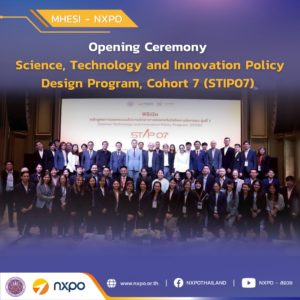NXPO, an agency under the Ministry of Higher Education, Science, Research, and Innovation (MHESI), announced Thailand’s performance in the 2024 IMD World Competitiveness Ranking – an annual report on the competitiveness of countries, along with recommendations to elevate the country’s competitiveness.
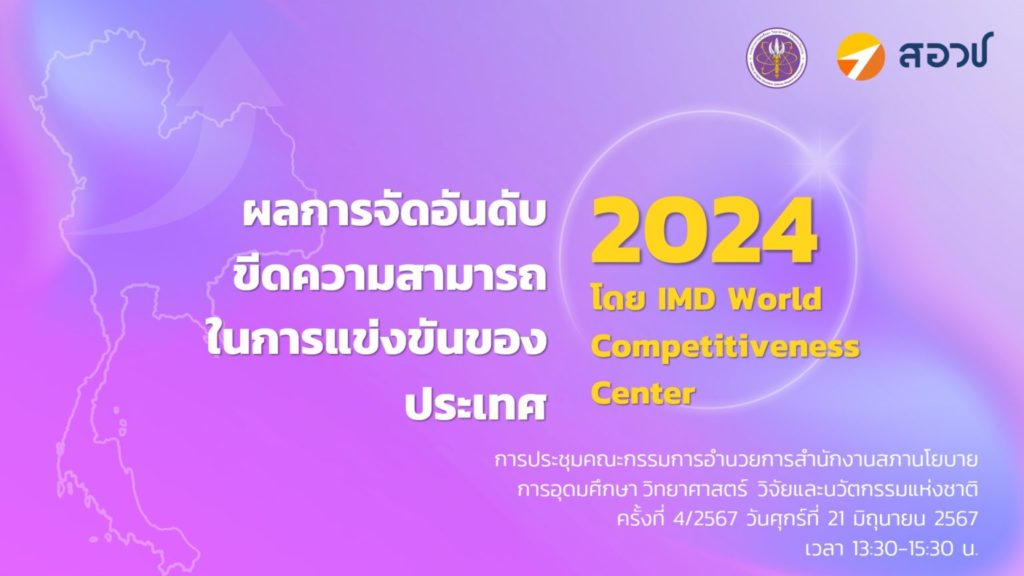

Dr. Siriporn Pittayasophon, Senior Strategist and Acting President of NXPO, revealed that Thailand’s ranking improved by 5 spots, rising from 30th to 25th among 67 global economies and placed 2nd in ASEAN after Singapore. Among the four key factors used in the assessment, Thailand’s performance improved in two areas: Economic Performance and Business Efficiency. Economic Performance moved up 11 spots from 16th to 5th, while Business Efficiency improved by 3 spots from 23rd to 20th. For the remaining two factors, Infrastructure remained unchanged at 43rd, while Government Efficiency was placed at 24th.
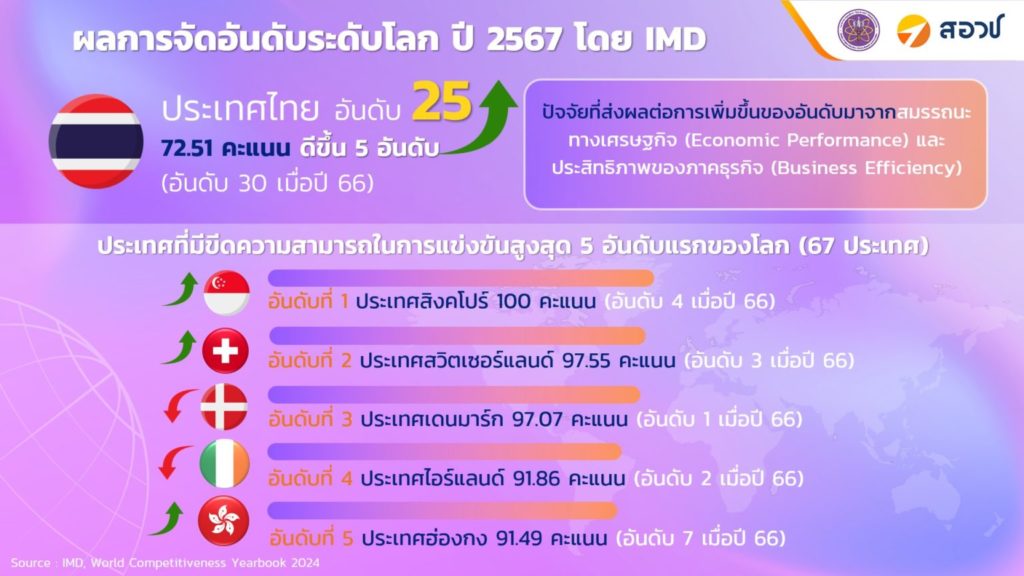
In the scientific infrastructure factor, improvements were seen in S&T publications and patents. The number of scientific articles increased from 13,468 to 18,491, resulting in a ranking rise from 29th to 25th. The number of patents in force per 100,000 population rose from 5.5 to 6.2, leading to an improvement from 56th to 55th.
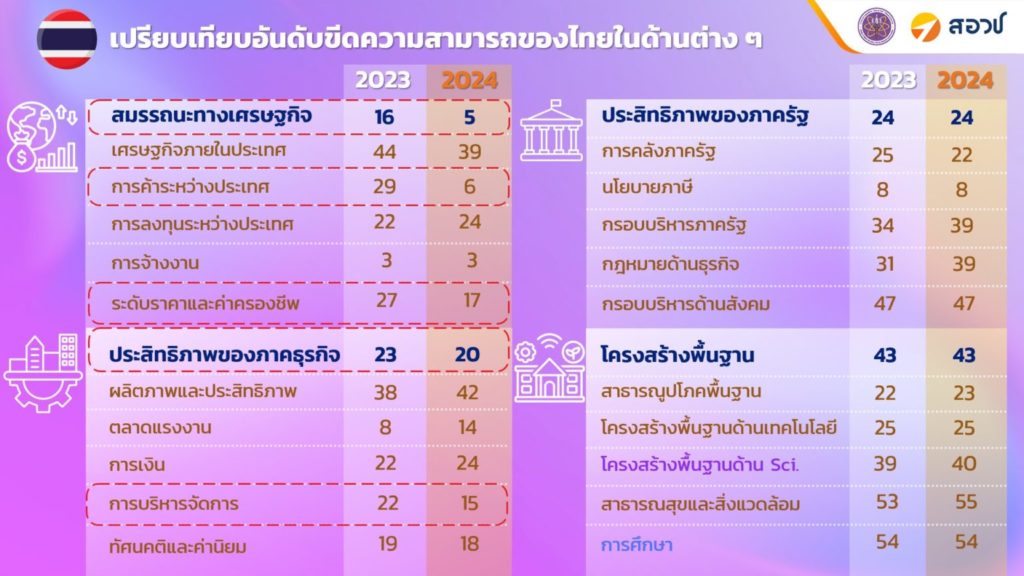
In the education factor, improvements were also observed. Total education expenditure as a percentage of GDP moved up 19 spots, from 51st to 32nd, with expenditure rising from 3.60% to 4.80% of GDP. The proportion of the population with higher education improved from 46th to 44th, increasing from 35% to 46%.
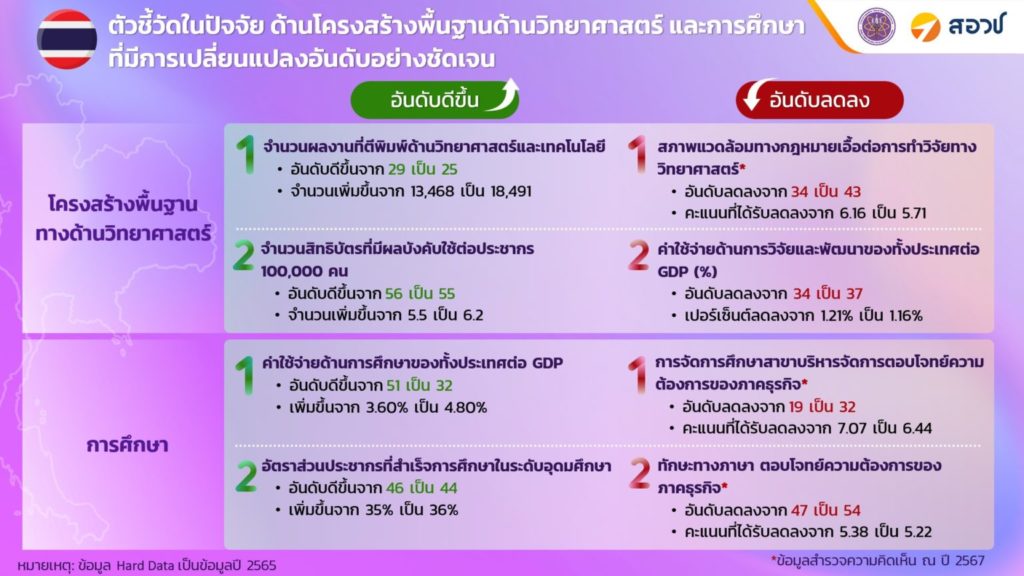
However, there are declines in some indicators. The legal environment conducive to scientific research dropped from 34th to 43rd, with scores decreasing from 6.16 to 5.71. National R&D expenditure as a percentage of GDP fell from 34th to 37th, dropping from 1.21% to 1.16%. Education management meeting business needs decreased from 19th to 32nd, with scores falling from 7.07 to 6.44. Language skills meeting business needs decreased from 47th to 54th, with scores falling from 5.38 to 5.22.
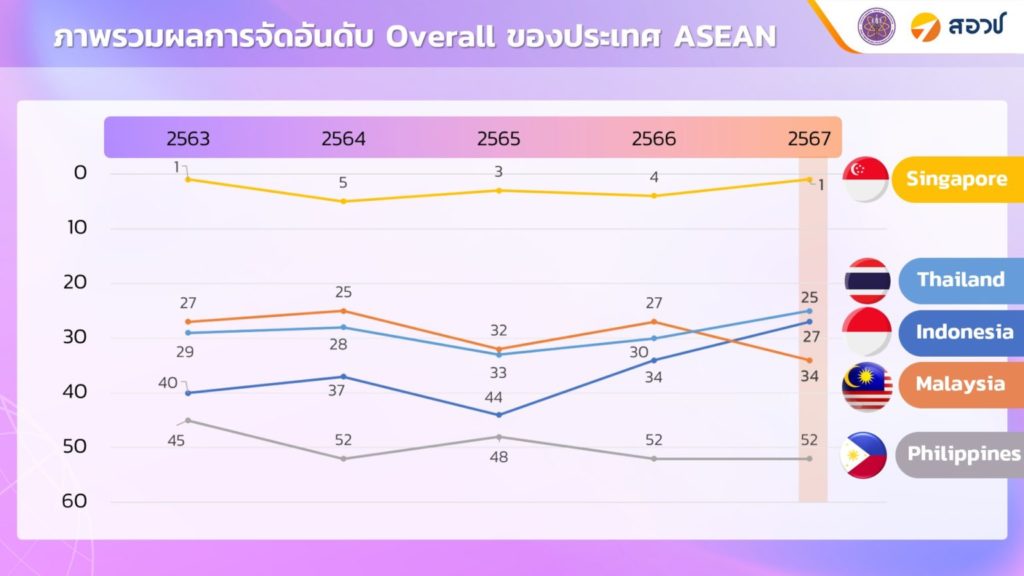
Based on these rankings, NXPO offered pathways to enhance competitiveness in scientific infrastructure and education as follows:
- A working group established in 2021 to develop action plans on scientific infrastructure can play a key role in driving competitiveness through a comprehensive process of implementation, monitoring, evaluation and reporting.
- MHESI can collaborate with the Thailand Management Association (TMA) to increase awareness on government policies on higher education, science, research, and innovation among the private sector.


